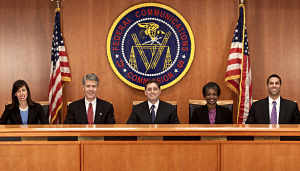3 Reasons Why Net Neutrality Matters for You

In 2010, the Federal Trade Commission ruled that the Internet must be accessible to all, something since dubbed “Net Neutrality.” It is the principle that Internet Service Providers (ISPs), like Comcast and Verizon, should not filter or block what gets shown on the Internet, and implicitly that they should not be able to charge users to have their information, websites, or products online. These rulings paved the way to keep internet going the way of cable television where only the major players with the biggest wallets can get quality air time.
This January, those rules were overturned in a court ruling , and there’s a big fight currently underway from lobbyists to keep it that way and from over 780,000 people who have petitioned the FCC to keep the internet a level playing field. The FCC is receiving feedback from the public in regards to this issue, and has fortunately extended the deadline to this Friday at midnight.
There are some major consequences for the music industry for Net Neutrality, and reasons you should care about this issue:
1. You might get paid less from music services
Music subscription services already don’t pay much to stream musicians’ music. With net neutrality going to the wayside, these services would likely have to pay ISPs to keep their presence online. It’s not beyond reason to assume that those extra costs would be taken out of artists’ profits at least in part.
2. Your online music could lose sound quality
Streaming radio and video services require more bandwidth to deliver their content. It’s possible that rather than paying a surcharge to continue streaming at the same quality, such services might opt to stream at lower quality to save money. The larger the bandwidth, the better quality music and video are available. By charging more for bandwidth, it places economic limitations on streaming quality.
3. You could lose your online presence, unless you’ve got a big label
Like cable television, only the biggest companies can afford access to viewers. If the Verizon, AT&T and Comcast lobbyists win , it’s could happen that only the biggest labels will be able to pay to promote their artists. Indie artists might not be able to compete. The implications of such are obvious: if you can’t afford to get a presence on the Internet, you lose your audience.
Go to the FCC website here to post your concerns for Proceeding Number 14-28, “Protecting and Promoting the Open Internet " and fill out the form to submit your concerns. You’ve got until Friday at midnight and spread the word.




